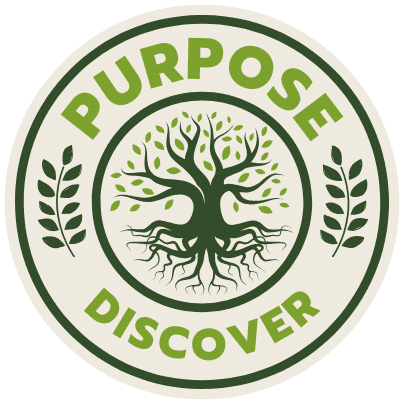So, you’re trying to figure out your purpose, huh? The big question that keeps you up at 3 a.m., wondering if your life is supposed to be more than working, paying bills, and somehow surviving social gatherings. “What’s my purpose?” feels like a massive cosmic riddle, almost as if the universe sat us down, handed over a cryptic syllabus, and said, “Figure it out!”
But while modern self-help articles promise to help you find purpose with seven easy steps (often involving vision boards and morning routines), philosophy has wrestled with this for, oh, a few thousand years. Whether you’re wondering if purpose is something that’s handed down to us by some grand force, a byproduct of our own creation, or a concept that’s more fiction than reality, the philosophers have opinions. Let’s break down some of their big ideas—and if you’re intrigued to dig deeper, check out this thought-provoking resource What’s Your Purpose.
1. Existentialism: Purpose is in the Eye of the Beholder
In the 20th century, existentialist thinkers like Jean-Paul Sartre and Simone de Beauvoir came forward to declare, “Purpose? We’re all just making it up as we go!” According to existentialists, life doesn’t come with a pre-baked purpose. Instead, we create our own meaning through our choices, actions, and the values we hold dear. This approach gives you full creative control over your purpose—like making a DIY project, but for your life.
The Big Idea: You get to decide. Sartre believed that “existence precedes essence,” meaning you exist first, and then you create who you are and what you stand for. If you’re up for taking responsibility for inventing your purpose, existentialism is your philosophical match.
The Catch: With great power comes great responsibility. Existential freedom can feel liberating, but it can also be terrifying. When you’re the sole architect of your purpose, you can’t blame anyone else if it feels off. Existential dread, anyone?
2. Nihilism: Maybe There Isn’t One
Ah, nihilism. For those dark days when purpose feels as tangible as your imaginary childhood friend, nihilism strolls in to say, “You know, none of this matters anyway.” Nihilists, like Friedrich Nietzsche (who arguably wasn’t entirely nihilistic, but leaned close enough), argue that life itself doesn’t inherently have purpose or meaning. Everything just… is. Purpose is something we create as a comforting illusion to distract from the fact that life might be a random accident.
The Big Idea: You don’t have to have a purpose. Life doesn’t require one. Nihilism proposes that we’re free from purpose, expectations, and grand meaning. If you can accept this, it might even feel oddly freeing.
The Catch: It’s easy to misinterpret nihilism as a ticket to throw up your hands and never care about anything. But for many philosophical nihilists, it’s less about giving up and more about embracing the blank canvas of existence. If nothing matters, you have the freedom to do whatever feels meaningful to you personally—whether that’s pursuing art, travel, or just having a good cup of coffee every morning.
3. Absurdism: Embrace the Paradox
Closely related to existentialism, absurdism was put forward by Albert Camus, who essentially said, “We’ll never find a meaning because life is inherently absurd, but let’s try to live joyfully anyway.” According to absurdist philosophy, we’re searching for purpose in a chaotic universe that doesn’t make sense. The absurd lies in our desire for clarity in an unclear world.
The Big Idea: Rather than despair, accept the ridiculousness of life! Camus believed that the only way to live authentically is to acknowledge the absurdity and then rebel against it by living passionately, finding joy where you can, and refusing to surrender to despair.
The Catch: Absurdism can feel like a game of mental gymnastics. You have to accept that your search for purpose is inherently pointless—and yet somehow still be okay with it. But if you can, absurdism can lead to a strangely satisfying way of looking at life, one that lets you laugh at the universe’s cosmic joke rather than feeling like its punchline.
4. Stoicism: Purpose Through Virtue and Duty
If the above approaches sound a bit too much like existential wild-west philosophy, maybe the structured serenity of Stoicism is more your speed. Stoic philosophers like Marcus Aurelius and Epictetus argued that the purpose of life is to live in harmony with nature, practice virtue, and fulfill your role within society. Stoicism emphasizes purpose as something you achieve through discipline, self-improvement, and fulfilling your responsibilities.
The Big Idea: You have a purpose, but it’s tied to how you treat others, respond to challenges, and live with integrity. According to Stoics, purpose isn’t about grand achievements; it’s about living in alignment with your values every day.
The Catch: Stoicism requires a lot of discipline. This isn’t for those looking for a purpose that just “feels right” in a carefree, happy-go-lucky way. It’s about finding meaning through effort, responsibility, and (you guessed it) embracing discomfort.
5. Humanism: Purpose Is Grounded in Our Humanity
For humanists, purpose isn’t something we search for in the stars or the meaninglessness of life—it’s something we build by being human and valuing other humans. This approach focuses on human potential, community, and ethics, suggesting that our purpose is grounded in helping others, achieving personal growth, and making the world a better place.
The Big Idea: Purpose is collective. Humanism suggests we find meaning by connecting with others, contributing to society, and nurturing our inner potential. There’s something beautiful about believing that purpose is as simple as being a decent human being.
The Catch: This approach can feel vague if you’re looking for a very specific, individual purpose. It also depends heavily on a belief in the goodness and importance of humanity, which, let’s face it, can feel challenging on certain news-heavy days.
So, Which Philosophy “Wins”?
If you were hoping for a clear winner—well, that’s just not how philosophy works. Each of these perspectives offers different insights into what purpose might mean, but it’s up to you to see which resonates (or doesn’t) with your experience. You might find existentialism liberating, stoicism grounding, or humanism inspiring. Or you might find that all of these have something to offer, piecing together your understanding of purpose from bits of each philosophy, kind of like a “choose your own purpose” adventure.
The Bottom Line: Crafting Your Own Purpose
Purpose isn’t something that philosophy hands to you on a neat, pre-determined platter. It’s an evolving journey, a blend of introspection, experiences, and sometimes even whims. Instead of demanding that life hand you one singular purpose, consider exploring purpose as a process, a work-in-progress as unique as you are.
And if you’re still curious about finding your purpose, What’s Your Purpose has some fascinating insights to keep you thinking.
Author
-
Milo Falk is a contributing editor at WhatIsYourPurpose.org. He works at the intersection of purpose, and disciplined practice. Clear prose. Verifiable sources. When Scripture is in view, he handles the text with context and cites respected scholarship. His pieces include checklists, prompts, and short studies designed to move readers from insight to action the same day.
View all posts


